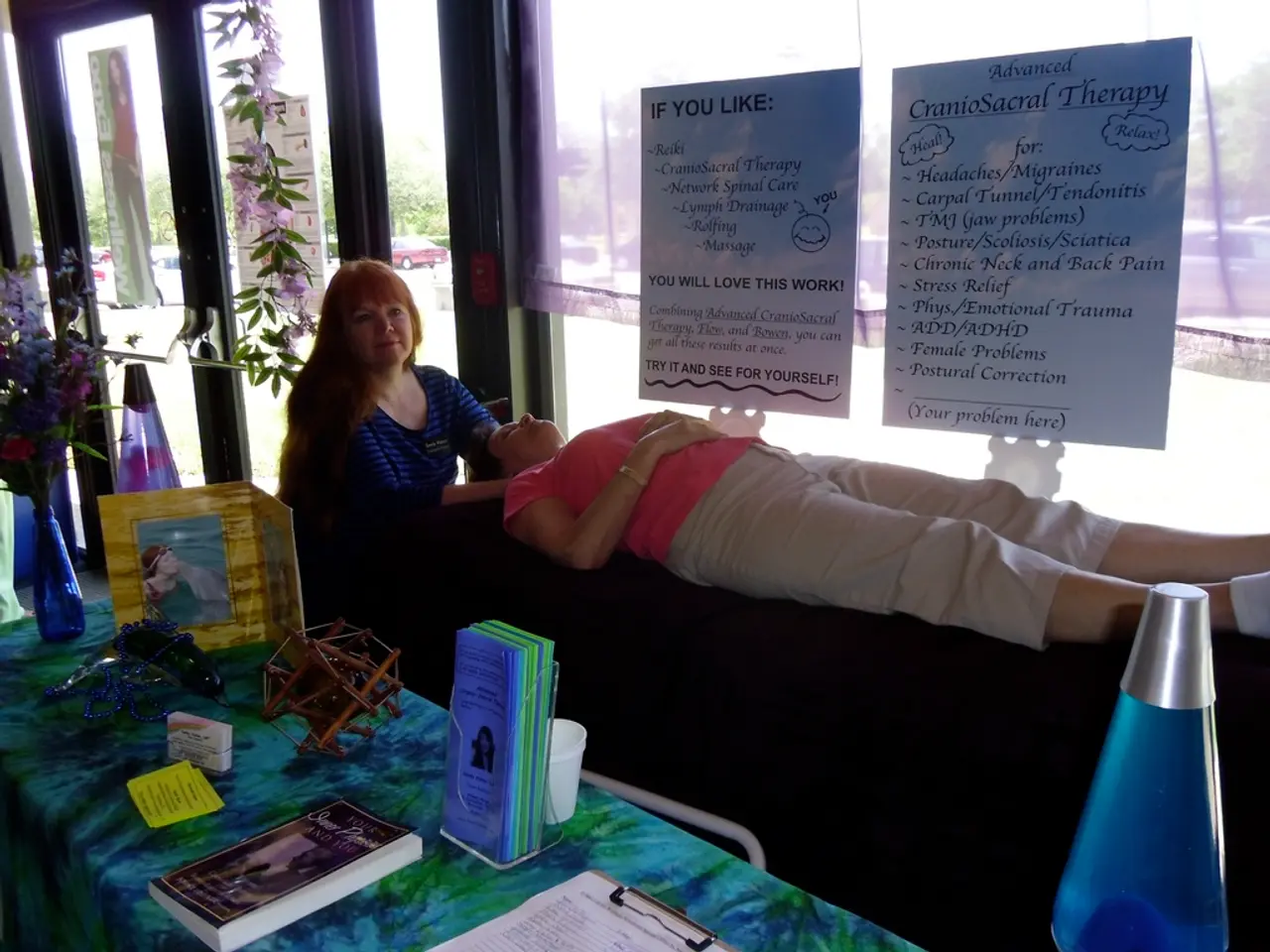Information on intricate grief complexities and how therapeutic interventions provide assistance
Losing someone or something of deep significance can lead to feelings of grief. However, it's essential to differentiate between normal grief and complicated grief, as the latter can have severe consequences on an individual's mental and emotional well-being.
Complicated grief shows up in three main forms: chronic grief, delayed grief, and absent grief. This type of grief is characterized by intense feelings of loss persisting far beyond what's typical, keeping you stuck in a cycle of pain that doesn't seem to ease.
In a therapy session for complicated grief, the focus is on identifying emotional and behavioral patterns and bringing awareness to what's blocking daily functioning. The first session or two with a grief therapist will involve creating a tailored, individualized treatment plan targeting healing from grief, preventing future relapses, and supporting overall wellness goals.
Complicated grief can also manifest through emotional and psychological indicators such as heightened irritability or anxiety, difficulty concentrating, changes in memory, vivid dreams involving the deceased loved one. There are also physical manifestations of complicated grief, including shortness of breath, chest or throat tightness, disruptions in sleep patterns, fluctuations in appetite, extreme fatigue or restlessness.
Complicated grief causes significant impairment in relationships and daily functioning, and involves a significant amount of distress as you are navigating this loss. Treatment aims both to facilitate acceptance of the loss and to support restoration—helping the individual rebuild a meaningful life without the deceased.
Treatment options for prolonged grief disorder (also called complicated grief) primarily include evidence-based psychotherapies, with adjunctive medication in some cases. The most effective treatments are:
- Complicated Grief Therapy (CGT): A specialized form of therapy combining cognitive-behavioral therapy (CBT) and attachment theory principles, focusing on helping clients accept the reality of the loss and gradually reengage with life.
- Cognitive-Behavioral Therapy (CBT): Tailored grief-focused CBT helps individuals reframe negative thoughts and develop coping strategies for loss-related distress, including managing co-occurring symptoms like insomnia.
- Group Therapy: Facilitates sharing and support among those with similar grief experiences, providing social connection and validation.
- Medications: Selective serotonin reuptake inhibitors (SSRIs) such as sertraline (Zoloft) or escitalopram (Lexapro) may be used to manage associated symptoms of depression or anxiety, often alongside psychotherapy.
- Additional Therapies: Some centers incorporate holistic approaches like meditation and art therapy to reduce stress and enhance emotional expression.
- Other evidence-based PTSD-related therapies (e.g., trauma-focused CBT, EMDR) may be considered when grief is complicated by trauma or grief-related PTSD symptoms.
Engaging with friends and family can help combat feelings of loneliness and detachment in complicated grief. Support groups specifically tailored to complicated grief can provide a safe space to share experiences and receive guidance from others who have walked a similar path.
If you are experiencing persistent feelings of hopelessness, sadness, guilt, intense loneliness, withdrawing from friends and loved ones, excessive fatigue, insomnia, inability to enjoy activities, difficulty taking care of responsibilities, over- or under-eating, or symptoms that aren't lessening over time, it's time to seek help. Complicated grief is real, treatable, and not your fault. Healing is possible through therapy, support groups, or the ongoing love of friends and family.
Recently, complicated grief was recognized as 'prolonged grief disorder' and was officially added to the DSM-5-TR in March 2022. Grief and bereavement are natural responses to losing someone or something of deep meaning, such as a loved one, a relationship, a pet, or a major life change. Self-care plays a pivotal role in managing complicated grief. Some self-care practices include listening to one's body's grief signals, giving oneself permission to function differently, using routine as an anchor, and practicing micro self-care.
Identifying the symptoms of complicated grief is crucial for early intervention and support. Some of the key indicators of complicated grief include intense and persistent pain over the loss, constant intrusive thoughts and memories of the deceased, deep feelings of sadness and guilt, difficulty going about daily life, avoidance of reminders of the loved one's passing, feeling emotionally detached from those around you, isolating yourself from family and friends, and feeling like you should've died in their place or you don't want to live without them.
Seeking professional help is often essential to effectively address complicated grief. The best way to start looking for a therapist or psychiatrist is to get a reference from a primary care provider or look at a list of providers covered by your insurance. Grief counselors and therapists who specialize in loss understand that complicated grief requires specific approaches and can be essential in managing it. Your grief matters, your pain is valid, and with the right support, you can find your way to a life that honors both your loss and your need to live.
Science has highlighted the impact of mental health on overall health-and-wellness, particularly in the context of complicated grief. In a therapy session for complicated grief, the focus is on applying evidence-based psychotherapies, such as Complicated Grief Therapy (CGT), Cognitive-Behavioral Therapy (CBT), and group therapy, to address the unique emotional challenges associated with this condition.




